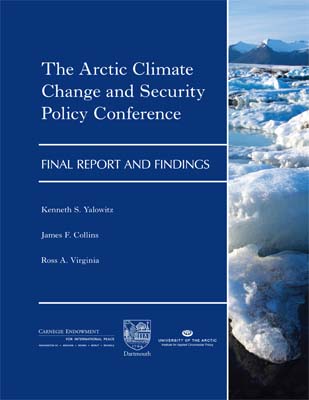The accelerating pace of climate change, increasing competition over resources, and new territorial claims demand that greater attention be paid to the Arctic. As the most immediate and serious threat to the region, minimizing the environmental impact of climate change and resource development must be the top priority, according to a report from the Carnegie Endowment, the University of the Arctic, and Dartmouth College.
Key points:
- An efficient and multilateral process for responding to environmental disasters is the Arctic’s most pressing need.
- The Arctic is unlikely to be a security flashpoint in the short term. State-to-state negotiations and multilateral institutions have effectively handled territorial claims thus far, and neither Russia nor the United States is looking for a new source of tension.
As a major Arctic power, the United States has environmental, political, and security interests and responsibilities and should play a key role in preserving the Arctic ecosystem.
Recommendations for U.S. policy makers:
- Create a sub-cabinet commission on global warming headed by the vice president to address the effects of climate change on the Arctic.
- Promote the Arctic Council as the principal international forum for addressing Arctic issues.
- Ratify the UN Convention on the Law of the Sea (UNCLOS) immediately. The UNCLOS provides a framework to adjudicate disagreements over borders and territory claims, which could become more heated as global warming facilitates access to resources.
- Support policy-relevant scientific research that can identify critical first steps for policy makers and identify the costs of inaction on the threat of global warming.
The report concludes:
“The environment and the management of natural resources are the most pressing security issues in the North. States are committed to addressing boundary and access issues through existing institutions, principally UNCLOS. Large-scale damage to the Arctic from transportation accidents, energy development, fishing, and pollutants from the South pose greater immediate threats than classic security issues. Existing emergency response systems and contingency plans are not up to the task.”
